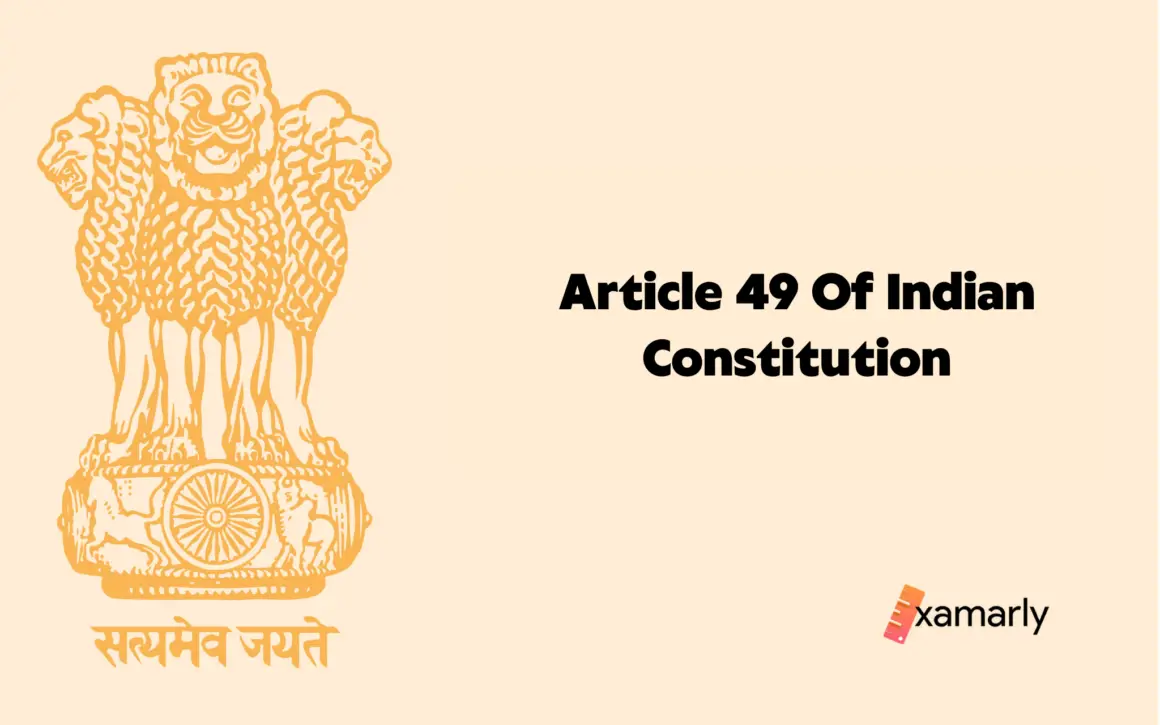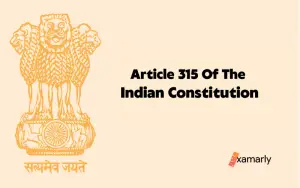- The Indian Constitution ensures that the fundamental rights of its citizens are protected and that they have a good standard of living. However, the scope of provisions through constitutional amendments and articles is not just limited to the betterment of people residing in the country.
- Article 48 of the Indian Constitution expands this scope a step further in the context of animal rights by including the welfare and protection of animals.
- Read this article to learn about how Article 48 does so and its significance.
- Article 48 Of The Indian Constitution: An Initiative Towards Animal Welfare And Protection
- Article 48 In Relation To The Directive Principles
- Incorporation Of Article 48 To The Indian Constitution
- Provisions Of The Indian Constitution Which Advocate The Welfare And Rights Of Animals
- Contribution Of States In Authorizing Article 48 Of The Indian
- Constitution
- Article 48 Of The Indian Constitution And Its Legal Judgment
- Abdul Hakim Qureshi v. the State of Bihar (1961)
- State of Gujarat v. Mirzapur Moti Kureshi Kassab (2005)
- Animal Welfare Board of India v. A. Nagaraja & Ors.
- Summing Up
- FAQs
Article 48 Of The Indian Constitution: An Initiative Towards Animal Welfare And Protection
- Article 48 of the Indian Constitution falls under the Directive Principles of State Policy, which define some duties for the State to fulfill.
- In the case of Article 48, the State was entrusted to work towards banning the slaughtering of animals such as cows and calves. This also included other milch animals and draught cattle.
- In addition to the previous duty, the State was also endowed with the responsibility of organizing agriculture and animal husbandry. These were to be done keeping modern and scientific lines in mind.
- The goal of Article 48 was the protection of Bos indicus. The Indian government felt the need to take necessary steps for the well-being and safety of cattle. It also had to make sure that the cattle wealth of the country remains rich. Numerous requests were coming in from related regions to prohibit the slaughtering of cattle. Hence, the government had to take action.
- Article 48 was challenged in the Supreme Court by a specific group of people. This group constituted butchers, tanners, gut merchants, curers, and cattle dealers. These petitions were submitted in line with Article 19(1)(g) and religion (under Article 25). The enforcement of Article 48 was a violation of fundamental rights, according to the petitions.
Related – Animal welfare and rights in India
Article 48 In Relation To The Directive Principles
- As mentioned earlier, Article 48 is a component of the Directive Principles of State Policy.
- The motive behind putting these principles in place was to provide direction to the Indian states in the formation of policies and their implementation.
- However, Article 48 could not be enforced in any court.
Incorporation Of Article 48 To The Indian Constitution
- According to public conventions from 1947, the Indian Constitution protects the practice of cow- slaughter. The nation’s economic interest led to the establishment of a league to safeguard cows. August 4 was proclaimed to be National Cow Day.
- Further, numerous anti-cow slaughter laws were passed by several national organizations. These included All India Swarajya Singh, the Ahmedabad Bullion Association, and the state assemblies.
- An intense debate followed in the Constituent Assembly. Then President Dr. Rajendra Prasad chose to consider cow protection to be a fundamental right.
- The Drafting Committee was established to address this issue. Dr. B.R. Ambedkar served as the head of this committee. According to his opinion, only humans and Indian nationals are entitled to fundamental rights. Article 48 would force the other members of the community to abide by it. This would go against their choice if it was included in the list of fundamental rights. As a result, it was decided that Article 48 will not be covered by the fundamental rights.
- In this manner, Article 48 was made part of Directive Principles of State Policy. These principles are covered under Part IV of the Constitution of India.
Provisions Of The Indian Constitution Which Advocate The Welfare And Rights Of Animals
- Part IV of the Indian Constitution contains Article 48 and Article 48A which focus on animal welfare concerns and animal rights. The goal that the state should pursue is referred to as the Directive Principles of State Policy, also covered in Part IV of the Indian Constitution.
- The well-being of animals is talked about in Article 48 of the Indian Constitution. It is also concerned with the protection of animals against mistreatment. According to the article, the government should make an effort to save the environment, take measures for the improvement of the environment, and prohibit animal cruelty.
- The Indian Constitution’s Article 48A is another constitutional provision that foregrounds animal welfare and rights. Article 48-A addresses factory farming. A farming operation that raises more than 1000 animals is referred to as factory farming. This provision forbids the use of animals in factory farms for slaughter and using animals in factory farms for research purposes.
Contribution Of States In Authorizing Article 48 Of The Indian
Constitution
- The lists of subjects that are under the purview of the centre, the states, and the concurrent list are discussed in the 7th schedule of the Constitution.
- The state legislature is empowered to pass laws for the protection of cattle and cow slaughtering. This is rendered under Entry 15 of the State list.
- As a result, many states in India have passed distinct laws that are based on the specifics of cow slaughter protection.
Article 48 Of The Indian Constitution And Its Legal Judgment
Let us now look at some of the cases that revolved around Article 48 of the Indian Constitution.
Abdul Hakim Qureshi v. the State of Bihar (1961)
- In this case, the petitioner argued that the government had violated Article 25 of the non-Hindu community. It was done by outright banning cow slaughter in the states of Bihar, Uttar Pradesh, and Madhya Pradesh.
- Muslims are permitted to offer cows as sacrifices during Bakr-id according to their religious traditions. According to the Supreme Court, it is permissible to sacrifice a goat or a camel instead of a cow on Bakr-id. It cited Islamic texts, the Quran, and the Hidaya in its decision. Thus, no one’s fundamental right is violated by the complete ban on cow slaughter.
Read Also – Article 47 Of The Indian Constitution
State of Gujarat v. Mirzapur Moti Kureshi Kassab (2005)
- In this case, the Supreme Court stood its ground regarding Article 48. It said that the article specifically addresses cow protection. Furthermore, it was stated that even when cattle aren’t being used, they should still be preserved and treated carefully because they have historically served human needs.
- According to the Supreme Court, after carefully reading Articles 48 and 51A, it is obvious that animals must be treated with respect and compassion . They also have a unique set of fundamental rights.
Animal Welfare Board of India v. A. Nagaraja & Ors.
- The Animal Welfare Board of India (AWBI) filed a lawsuit in the Supreme Court of India in 2010. Due to worries about cruelty towards animals and public safety. The lawsuit was filed with the motive to have Jallikattu banned.
- The use of bulls as performance animals was prohibited by the Ministry of Environment and Forests. It issued a notification that outlawed Jallikattu in 2011. However, the continuation of the practice on certain conditions was allowed. This was facilitated by the Tamil Nadu Regulation of Jallikattu Act (2007).
- The Supreme Court decided in support of the AWBI. It upheld the enforcement of the prohibition on Jallikattu. It declared that the Constitution’s Article 51 A (g) is the “Magna Carta of animal rights”. In addition to that, it made numerous observations to protect the “life” of animals under Article 21.
Summing Up
The Indian Constitution outlines the rules and policies that apply to the entire nation. Even though Article 48 is only a small section of the constitution, it addresses several significant issues. Banning the slaughter of cows, calves, and other dairy animals, looking into animal welfare concerns, dealing with concerns of animal cruelty, and resource conservation are some of the issues addressed by Article 48.
FAQs
Q. What was Draft Article 38-A about?
Draft Article 38-A was an initiative to direct the State to work for the improvement of the agriculture and animal husbandry sector. It also aimed to ban cattle slaughter. Its final version became Article 48 of the Indian Constitution.
Q. When was Draft Article 38-A introduced to the Draft Constitution?
Draft Article 38-A was introduced by an Assembly member on November 24, 1948.
Q. What kind of arguments supported Draft Article 38-A?
Draft Article 38-A was backed by both religious and economic justifications. In Hindu religion and culture, cattle in general were given a special significance. These animals’ slaughter amounted to an assault on Hinduism. Secondly, as a source of economically valued products like dung and milk, cattle were important to the Indian economy.






